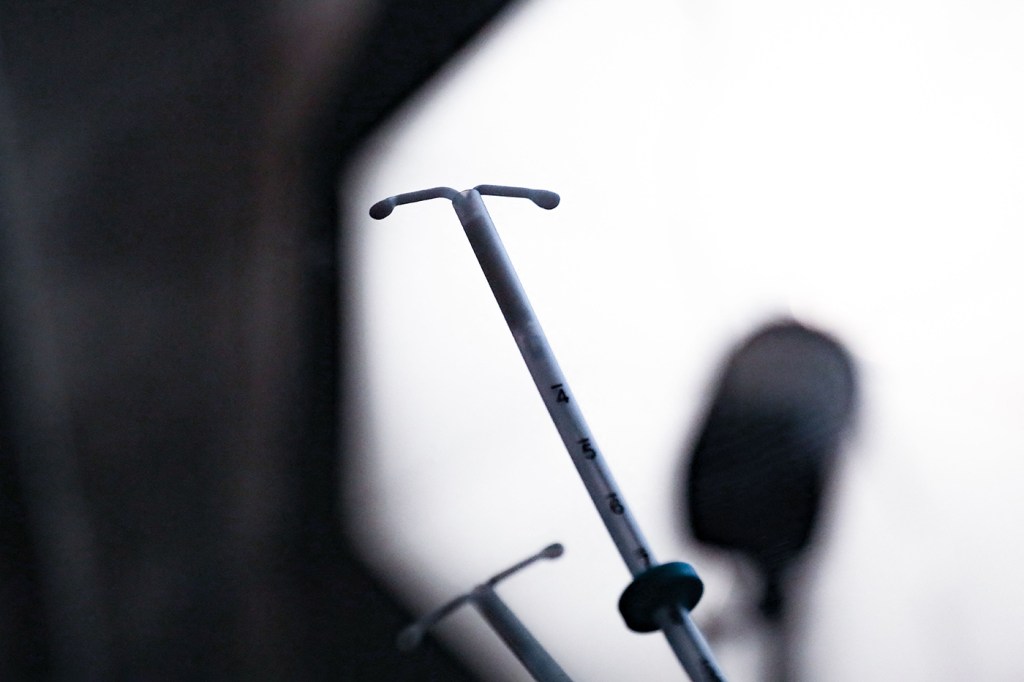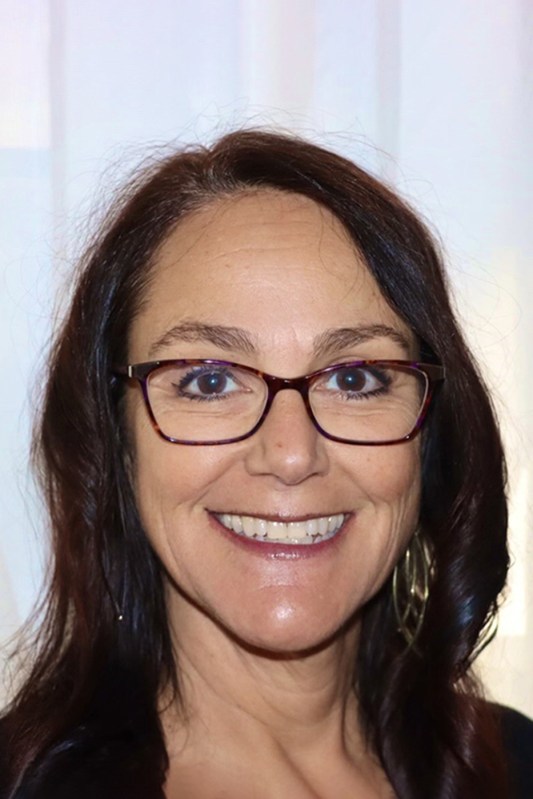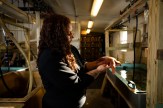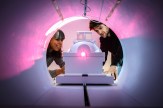IUDs still ‘very safe’ in light of new research on breast cancer risk
A study out of Denmark found people with IUDs had a higher risk of developing breast cancer, but Northeastern experts say it’s important to put this research into context.

Intrauterine devices are one of the most effective reversible forms of birth control, despite the pain many go through during the insertion.
Northeastern University experts say that IUDs continue to be a strong option for patients hoping to avoid pregnancy, despite new research that shows that certain hormonal ones can lead to an increased risk of breast cancer.
“I think it’s still a very effective and very safe method overall,” said Kathy Simmonds, a clinical professor in the School of Nursing within the Bouvé College of Health Sciences.
A study out of Denmark examining 78,595 women using IUDs with levonorgestrel and 78,595 women who don’t use these devices found those using IUDs had a 40% higher chance of developing breast cancer.


While this sounds high, what this translates to for women in the United States is their breast cancer risk going from 1 in 204 to 1.4 in 204, which is important to put into consideration, experts stressed.
“The risk is very low,” Simmonds said. “The essential piece is people that have been using birth control pills over the last three decades have already been living with that kind of risk-taking and we don’t think of birth control pills as wildly dangerous. It’s not causing a lot of cases of breast cancer, but you should be aware of that.”
Elyse Watkins, a women’s health expert and associate clinical professor in medical science at Northeastern University, said there is also no data as to whether any of the participants had hormonally driven breast cancer or if they had a genetic predisposition to breast cancer, factors that might play a role in whether a person develops the disease.
Featured Posts
“It’s important to backtrack a little bit,” she added. “It’s not a randomized control trial. They’re looking at retrospective data. There are problems with looking at that kind of data and there’s certain factors that weren’t controlled for.”
Both Watkins and Simmonds said any medication comes with risks and the fact that hormonal birth control can lead to cancer isn’t new. Studies have shown birth control pills can also lead to an increased cancer risk. But Simmonds said the dosage of hormones in them have dropped over time and are now very low.
“I always tell my patients, friends and family members, one of the questions you always need to ask is ‘Is this going to potentially increase my risk?’” Watkins added. “Any kind of hormone is going to increase your risk. But there are benefits to using the IUD. It’s long-acting, it’s reversible. It really comes down to the patient and their health care provider having an informed, shared decision-making conversation.”
Additionally, there’s evidence that hormonal birth controls can lower the risk for gynecological cancers.
Simmonds said whether an individual wants to take that risk is up to them, but the people who might want to be concerned are those with a personal or family history of breast cancer. There’s also other risk factors to consider, Watkins added, such as a person’s alcohol and tobacco use.
Patients should speak to their health care provider about their history, whether they’re at a higher risk, and what their options might be outside an IUD, both experts said.
“Those would be the people that should bring extra caution,” Simmonds added. “There’s lots of other non-hormonal options for contraceptives. You can use a copper IUD and that’s a very effective method that is non-hormonal. … Maybe you’re somebody who’d be a good user of condoms. (Your health care provider) should help you put your options in the context of your own lifestyle and personal needs.”
Also important to consider is the risk of an unwanted pregnancy and the toll that can take on one’s house.
“I always want to contextualize any contraceptive risk in the context of pregnancy,” she added. “It’s just really important to think about how pregnancy carries risks, more risks than many contraceptive methods. What risks are you willing to carry to prevent pregnancy is an important context.”











